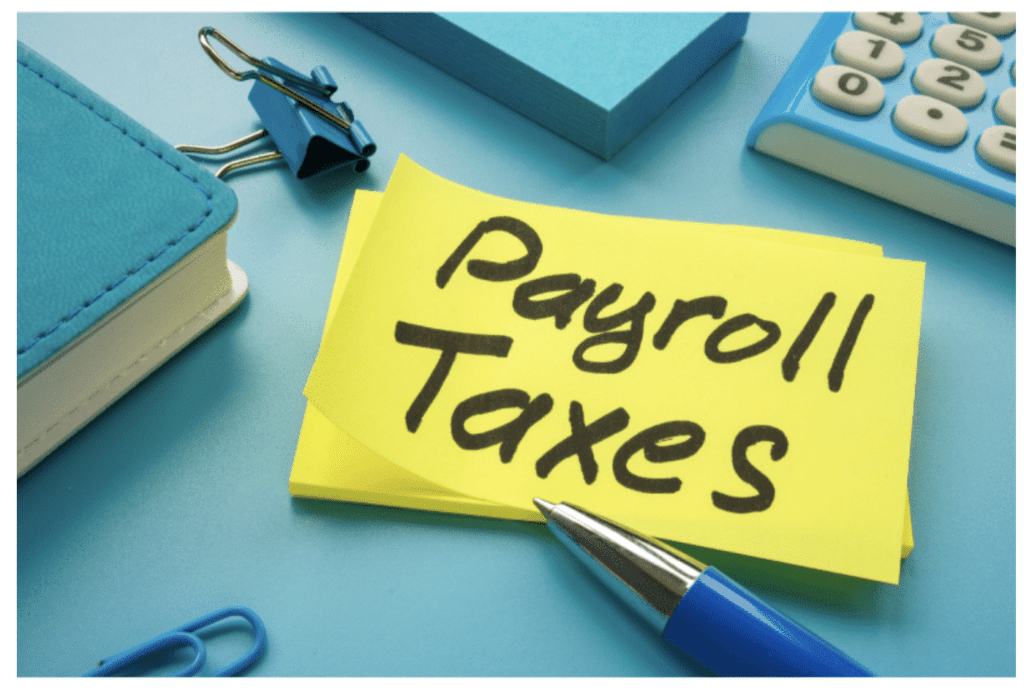A Conversation Chris Rhyss Edwards
Chris Rhyss Edwards is a former soldier who spent a decade in the Australian Army as a Combat Engineer and Peacekeeper. Many years after leaving the military, on his honeymoon in Thailand, he and his wife were having serious problems. Rather than enjoying what should have been a romantic vacation, they were at each other’s throats because they felt socially isolated from their support networks, and were struggling spending so much time together in confinement. At his lowest moment, Chris found himself on top of a building seven stories high, emotionally burnt out, and contemplating whether to jump.
As he stood there, peering over the ledge, he was interrupted by a text message from a friend asking, ‘Are you OK? I haven’t seen you on social media’. Fortunately, that was enough to change Chris’ mindset, and he stepped away from the edge.
What was happening to Chris, happens to too many veterans. Bouts of depression, anxiety and PTSD affect almost half of those who leave the Australian Defence Force.
Although his wife returned to Australia — and Chris subsequently struggled with insomnia, heavy drinking, and loneliness — he carried on, realising he wanted to do something to help others in similar stressful circumstances.
After thinking the idea over, he was inspired to create an app linked to wearable technology. The app would help people identify stress early on, so they could turn things around before their stress worsened. As an army veteran, Chris thought this technology would be particularly useful for those who had served in the military.
Stress and the military
If anyone is to know something about stress, it’s Chris. Growing up in the shadow of a violent alcoholic father, Chris became accustomed to witnessing regular beatings of his mother, as well as enduring many beatings of his own.
From a young age he recalled standing in front of his mother when his father returned home drunk and angry. This compulsion to protect ultimately led Chris to want to become a soldier as soon as he could. So, at the age of 17, he joined the army and never looked back.
Unfortunately, by then Chris had already developed complex PTSD, and his time in the habitually chronic stress environment of the army only worsened it.
As Chris described, “It’s a fairly stress filled environment that comes at you from many directions. There’d be car accidents with people killed or seriously injured, so if you were first on the scene you’d be scraping up your mates or patching them up until help arrived. Other times, there’d have been a suicide and you’d be the first on the scene so you’d need to try and keep people calm, things like that.”
As a result of those experiences, Chris developed complex PTSD or CPTSD. Whereas PTSD is caused by a single traumatic event, CPTSD occurs after months — and even years — of repeated traumatic experiences. It also has more debilitating symptoms than PTSD.
For instance, while both diagnoses are associated with nightmares, flashbacks and hyperarousal, complex PTSD also includes symptoms like: uncontrollable feelings, dissociation, negative self-perception, relationship difficulties and a strong sense of despair.
Regrettably, this condition is relatively common among military personnel. As Chris explains, “Only about 20% of soldiers in operation are shot at, but 46% of us leave with some form of mental illness or injury, and about 28% suffer from post-traumatic stress. PTSD actually derives from being in a sustained period of stress and never having the chance to power down. Basically, the brain rewires and you stay in a state of chronic stress.
The development of the Soldierly app
As a result of his army experiences, Chris was easily able to see how wearable technology could benefit those currently serving in the military, as well as veterans. So, he sat down with various factory executives at Apple, Fitbit, Samsung, and Google Life Sciences to discuss the idea with them, and it was met with great enthusiasm.
Based on those conversations, Chris founded the company, Soldier.ly, to produce his smartphone app. The Soldierly app which will be released in early 2019 — runs on Fitbit smartwatches and works on popular iOS and Android smartphones to detect stress and help the wearer take control.
It does this by tracking various behavioural biometrics including heart rate variability, sleep cycles, time spent in exercise and time spent using a smartphone. Then, based on various signals, it interrupts the wearer when it senses the onset of stress. Chris describes this as especially important, because many military personnel have become so accustomed to stress that they don’t even realise when they’re beginning to experience it.
He explains, “We lose a veteran every hour in the United States, and in Australia, it’s one every four days. The goal of the Soldierly app is to reduce suffering in the veteran and first responder communities by actually helping people who are accustomed to living with chronic stress to become mindful of it.
“The interesting thing is because they get so used to stress, they actually don’t recognise the signals anymore. So, when you can actually look at an outsider — your device being the outsider — and say ‘Hey, I’m detecting sustained periods of stress, do something about that right now’.
“This does two things… the first is that the app makes them mindful of stress and then helps them calm down, but what it also does is help them start to notice when they’re in these scenarios that have previously caused stress so they’re less stressed when facing them in the future. That was an unexpected outcome for us,” he says.
How the Soldierly app works
“Basically, your average Fitbit sits on your wrist with its array of electronic sensors and apps that quietly run in the background, looking at how far you’re moving, whether you’re sleeping or moving around at night, noticing if your heart rate is steady for a period of time etc. There are several different algorithms running at once and it’s building up a baseline”, Chris explains.
The Soldierly app then notices when there are significant variations from the baseline. When these are observed, Chris explains, “It alerts you by vibrating. On the screen, it will say, ‘Hey, are you okay? I’m detecting elevated heart rate levels’.
“If you say, ‘Yeah, I’m OK, then it asks ‘OK, so how serious an event was this?’ and it then asks you to rate the triggering event. So, for example, you may have been playing Xbox, which is a positive stressor, so now the app learns that this biometric incident profile isn’t a threat, so it knows not to worry about that in the future’. Basically, the device learns about you as an individual as you go about your day to day life, becoming smarter daily.”
On the flip side, if the user is experiencing stress, the Soldierly app identifies the level of stress and then makes suggestions to bring users closer to their baseline. For example, in the case of mild stress, users are guided to do a breathing exercise — breathing in for four counts, holding their breath for four counts, and then exhaling for four counts, until they return to a calm state.
In the event of moderate stress, they’re directed to open up their smartphone and go through a guided visualisation and auditory exercise that uses binaural beats — in conjunction with guided meditation — to calm the brain down.
Then, in the case of severe stress, the Soldierly app does one of three things.
The first option it will offer is to reach out to the users chosen social connections, letting them know via messenger or SMS that their friend needs their support right now. If the user wants more formal support, the app asks, ‘Do you want to find support in your local area to go and see right now?’ If they choose yes, the app recommends whichever of the 3,000+ national Ex-Service Organisations that are located within the persons postcode. If there’s no local support available, the app will connect them immediately to the Open Arms (formerly VVCS) national hotline.
“We’ve tested this tiered approach and it’s just gone down so well. The boys will literally prefer to let their friends know, so when I hit the reach out button, it automatically pings the phones of the five people in my network, where we’ve found that at least two of them pick up in real-time and that, for our community, is awesome,” he says.
The Soldierly app has so much potential to serve the veteran community that Chris and his team are in discussions with the Department of Veterans Affairs to conduct a national trial. The aim of the trial is to better understand what is causing veterans’ stress, as well as to help veterans achieve better mental health by helping them take control of the stress in their lives.
Other uses for the Soldierly app
As useful as the Soldierly app is for the military, it has the potential to be far more than just a tool for improving the lives of veterans. The app can readily be used in other vulnerable communities, such as helping people with disabilities, first-responders, the elderly and even stressed out executives.
To that end, there’s a lot of exciting research underway at Soldierly who have recently partnered with UTS’ Neuroscience Research Laboratory to conduct medical grade testing of the app with a view to it receiving TGA approval as a medical device.
“By the end of January, we hope to have enough data to make one final tweak of the algorithm so that we know we are achieving accuracy scores above 90%”, he said. “We plan to run tests on veterans and first responders, and then validate the learnings from these tests with mainstream civilian audiences so we can make the app live on the App Store and Google Play Store where it’s available to the 40 million Americans and 2.5 million Australians who are dealing with severe stress”.
Chris mentions that in addition to helping those individuals, the Soldierly app also has the potential to be extremely valuable in the corporate world. To this end, he considers himself especially fortunate for his amazing experience with HCF Catalyst, Australian’s leading health tech accelerator program.
“HCF Accelerator has been so good to us in the sense of supporting us through our journey and connecting us with some amazing people along the way. They have also agreed to participate in a pilot trial with 100 executives using the Soldierly app, which I think is a great start for us to move into the corporate sector where stress costs big business around $300 billion a year.
“It’s very much thanks to Sheena Jack, CEO of HCF, that we’ve been able to develop a fully-functional prototype which we have been able to take to trial in under 6 months. They’re a very proactive supporter of ours, and we’re deeply grateful for that support,” Chris says.
How the Soldierly app can benefit GPs
While the Soldierly app will be especially useful to individuals suffering from stress, it can also make it easier for GPs to treat their patients. For instance, after speaking to a large group of GPs in Australia, Chris realised there’s a very specific need for improved patient monitoring. This is seen as particularly important, because a whopping 70% of visits to doctors are stress-related.
“We could lessen the burden on the National Health System if there was a proactive monitoring tool that a doctor could use to help patients who come in frequently”, Chris says. He believes that with this capability, doctors could monitor patients from their office and give them a call if it looked like they needed additional help.
“It’s great for elderly people as well… Some older people can fall over in their houses and may lay there for hours or days undetected and unable to reach out for help. With the Soldierly app, we could see they were incredibly stressed, and that persons GP, neighbours or family could be immediately alerted to offer support.”
Chris encourages doctors who are interested in the technology to visit the Soldier.ly website. He also appreciates receiving emails from GPs and other people who offer suggestions for other use cases for the app, saying, “I get the weirdest and most wonderful emails at all hours of the day from people offering their support, it’s been amazing.”
To reach Chris by email, you can contact him at [email protected].
The bottom line
Stress in itself isn’t bad, yet we’ve normalised stress to the point that it’s become dangerous. According to the American Psychological Association, chronic stress is linked to the six leading causes of death: heart disease, cancer, lung ailments, accidents, cirrhosis of the liver and suicide. It also leads to negative mental health outcomes that affect our entire society, impacting people of all ages relationships and working lives, and resulting in billions of dollars in productivity losses every year.
While stress impacts almost everyone at some point in their lives, there are some populations that are particularly vulnerable, such as military personnel, veterans, the disabled, the elderly and those with mental illnesses.
Until recently, there were few reliable solutions to help these individuals identify when they were beginning to experience stress, so they could turn things around. With the advent of the Soldierly app, that’s changed.
Perhaps, in the not-so-distant-future, GPs will be able to monitor patients’ conditions from the comfort of their office with the use of wearable technologies — allowing them to proactively provide patients with the best possible care. Sounds to us like an idea whose time has come.



